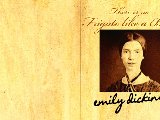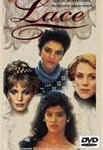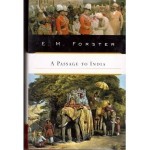This post is a guest post I wrote for the “Great Authors” section of Andrea Peskind Katz’s fabulous blog, “Great Thoughts”.
 When I was in high school, every year the faculty awarded one student a book stamped with a bookplate that showed two children under a tree reading, and the maxim “There is no frigate like a book.”
When I was in high school, every year the faculty awarded one student a book stamped with a bookplate that showed two children under a tree reading, and the maxim “There is no frigate like a book.”
The teacher presenting the award must have explained that a frigate is a ship, and that the line comes from an Emily Dickinson poem celebrating literary journeys, but I don’t remember anyone ever doing so. I was too busy trying not to laugh at the sound of a teacher saying “frigate.”
I later realized that Emily was onto something in linking traveling and reading. One of the things I love about traveling is the way it reduces you to your essential self; being in a new place, without your beloved friends and well-known possessions, you’re no longer the person you’ve carefully constructed over time, but the soul you simply exist as. The thing I love about reading is the opposite—it removes you from yourself, forcing you to imagine, almost to become, other people, to care about their joys and sorrows.

When I started writing myself, I focused on journeys, both spiritual and physical. My travel memoir, North of Ithaka, details the year I spent living in a small Greek village overseeing the rebuilding of my grandparents’ home. And my novel, Other Waters, follows Maya Das, a psychiatrist who thinks her family has been cursed, as she voyages from New York to India and back in an attempt to forge one identity while ricocheting between two cultures.
 My absolute favorite journey, though, is the kind that is both literary and physical: I love walking into a hotel room in a non-English speaking country to find that a fellow traveler has left an English language novel behind for me to discover. When I was 18 and traversing Greece reporting for the Let’s Go travel guides, I came across a copy of Lace on the island of Corfu. I would have been embarrassed to sit on the T reading the potboiler back in Boston, but it gave me hours of delight on various Greek beaches and buses. A decade or so later, I spent a day hurtling through Mexico in the backseat of a van, reading A Passage to India. The two countries—both vibrant, mystical, poor, gorgeous—seemed to overlap, turning one journey into two and making me vow to visit India one day. It was more than a great read; to paraphrase Emily Dickinson, it was a frigate miracle.
My absolute favorite journey, though, is the kind that is both literary and physical: I love walking into a hotel room in a non-English speaking country to find that a fellow traveler has left an English language novel behind for me to discover. When I was 18 and traversing Greece reporting for the Let’s Go travel guides, I came across a copy of Lace on the island of Corfu. I would have been embarrassed to sit on the T reading the potboiler back in Boston, but it gave me hours of delight on various Greek beaches and buses. A decade or so later, I spent a day hurtling through Mexico in the backseat of a van, reading A Passage to India. The two countries—both vibrant, mystical, poor, gorgeous—seemed to overlap, turning one journey into two and making me vow to visit India one day. It was more than a great read; to paraphrase Emily Dickinson, it was a frigate miracle.